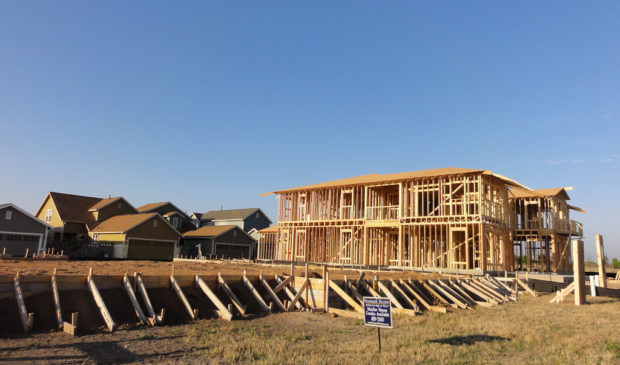Garza, Renteria, Casar unveil Housing Justice Agenda
Wednesday, April 4, 2018 by
Jack Craver Three City Council members say they are united to push for a series of aggressive affordable housing measures, including a major increase in housing subsidies and reforms of the land development code.
At a panel at the Austin Convention Center Tuesday afternoon, Council members Delia Garza, Pio Renteria and Greg Casar described seven parts of a “Housing Justice Agenda” to increase the availability of housing that is affordable to low-income, working-class and middle-class people across the city.
At the top of the list is a major housing bond. Although Casar and Renteria have both said they want a $300 million bond for affordable housing presented to voters in November, on Tuesday the trio said their aim was for it to be $250 million to $300 million.
The other affordability priorities outlined in the plan include:
- Renter protections that require developers to pay the relocation costs of tenants who are displaced if the property they live on is redeveloped;
- Creating a centralized list of low-income people who are seeking affordable housing that social service providers could direct their clients to;
- Developing an Affordability Multiplier Program with tax increment financing to create more affordable housing along the major corridors that will be receiving mobility improvements through the transportation bond;
- Providing low-income housing in every Council district, including affluent parts of West Austin that currently have very little subsidized housing;
- Education for homeowners on how to protect themselves against “fraud and exploitation from predatory home investors and lenders.”
The final point in the plan called for revamping the land development code through CodeNEXT to promote more residential density, both by allowing the construction of more units on lots that are currently zoned for single-family homes and by providing density bonuses that incentivize developers to provide income-restricted housing in exchange for additional height or units.
All three Council members credited the new 10-1 Council system as well as the current national political environment as providing an opportunity to make big changes in Austin’s housing landscape for the benefit of the poor and middle class.
Garza, noting that she was the first Latina to ever be on Council and that she and her two peers amounted to the first Latino trio, said that the 10-1 system offered a chance to “change the narrative” about housing and affordability that had long been shaped by a political establishment formed predominantly by affluent, white constituencies.
Garza chuckled as she recalled running past a home in Central-West Austin during the recent 3M half-marathon that she said displayed the paradox of politics in a self-proclaimed bastion of progressivism. The home’s lawn had two signs. One said “Protect Deed Restrictions” while another said “Black Lives Matter.”
Deed restrictions, noted Garza, were largely created to prevent minorities from moving into white neighborhoods. Deeds for properties in neighborhoods such as Hyde Park still include prohibitions on ownership by nonwhites, although they are of course now unenforceable.
Renteria similarly referenced the story of a constituent who wanted to build a second unit on his 17,000-square-foot lot to house his adult son, who could not afford to buy his own home in rapidly gentrifying Central East Austin. The city code prohibited the homeowner, whose property was zoned SF-2, from constructing an additional unit unless it was intended to house a domestic worker, a remnant of a “plantation” mentality to zoning, said Renteria.
Asked how Austin voters, who in 2012 rejected a $78 million housing bond, could be persuaded to back a $300 million measure, Casar alluded to recent successes of Democrats in state legislative and congressional races across the country, arguing that the political environment was ripe for major progressive victories due to the growing discontent about the conservative agenda being pushed by the Trump administration in Washington, D.C.
This story has been updated to clarify Casar’s remarks about the bond election.
Photo by Garreth Wilcock made available through a Creative Commons license.
The Austin Monitor’s work is made possible by donations from the community. Though our reporting covers donors from time to time, we are careful to keep business and editorial efforts separate while maintaining transparency. A complete list of donors is available here, and our code of ethics is explained here.
You're a community leader
And we’re honored you look to us for serious, in-depth news. You know a strong community needs local and dedicated watchdog reporting. We’re here for you and that won’t change. Now will you take the powerful next step and support our nonprofit news organization?









